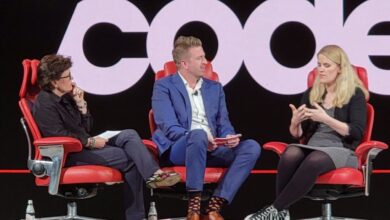
The company said it would better “encompass” what it does, as it broadens its reach beyond social media into areas like virtual reality (VR).
The change does not apply to its individual platforms, such as Facebook, Instagram and Whatsapp, only the parent company that owns them.
The move follows a series of negative stories about Facebook, based on documents leaked by an ex-employee.
Frances Haugen has accused the company of putting “profits over safety”.
In 2015, Google restructured its company calling its parent firm Alphabet, however, the name has not caught on.
Facebook boss Mark Zuckerberg announced the new name as he unveiled plans to build a “metaverse” – an online world where people can game, work and communicate in a virtual environment, often using VR headsets.
He said the existing brand could not “possibly represent everything that we’re doing today, let alone in the future”, and needed to change.
“Over time, I hope that we are seen as a metaverse company and I want to anchor our work and our identity on what we’re building towards,” he told a virtual conference.
“We’re now looking at and reporting on our business as two different segments, one for our family of apps, and one for our work on future platforms.
“And as part of this, it is time for us to adopt a new company brand to encompass everything that we do, to reflect who we are and what we hope to build.”
The company also unveiled a new sign at its headquarters in Menlo Park, California, on Thursday, replacing its thumbs-up “Like” logo with a blue infinity shape.
Mr Zuckerberg said the new name reflects that over time, users will not need to use Facebook to use the company’s other services.
The word “meta” comes from the Greek word meaning “beyond”.
To an outsider, a metaverse may look like a version of VR, but some people believe it could be the future of the internet.
Instead of being on a computer, people in a metaverse might use a headset to enter a virtual world connecting all sorts of digital environments.
It is hoped the virtual world could be used for practically anything from work, play and concerts, to socialising with friends and family.
Facebook said it intends to start trading its shares under the new stock ticker MVRS from 1 December.
Critics believe that Facebook did this because the brand became toxic. They may well not buy into the rebranding and continue to call the company Facebook.
Mark Zuckerberg announced on Oct. 28 that Facebook is changing its name. What was formerly known as Facebook Inc., the parent company behind the namesake app, as well as Instagram, WhatsApp, Messenger, and the virtual reality company Oculus is now called Meta Platforms Inc.
The move is a nod to the metaverse, an immersive next-generation version of the internet that relies heavily on virtual reality technology. Instead of browsing or sending messages online, you could feel like you’re physically there, interacting with virtual versions of real people, places, and stores.
The metaverse doesn’t really exist—at least not yet. The idea was popularized by the 1992 novel Snow Crash by Neal Stephenson, a persistent virtual reality world navigated by the book’s protagonist. Other sci-fi books, movies, and TV shows like The Matrix, Ready Player One, and Stranger Things also explore the concept of “mirrorworlds” where everything in the real world has a digital counterpart.
In the metaverse, you can go to school, go to work, play games, watch concerts, browse store shelves, and much more without ever leaving your home. If the internet is two-dimensional—text and images on flat screens—think of the metaverse as three-dimensional and multi-sensory including touch.
Currently, there are some spaces online with similarities to the metaverse, like the hand-drawn Topia and the virtual reality platform AltspaceVR. Both Fortnite and Roblox, among other massively multiplayer games, are perhaps the most prepared for the metaverse. Already people attend live events, interact with friends’ avatars, buy virtual goods, and even shop at brand-name stores in these worlds. But none resemble the parallel digital reality Facebook envisions.
The metaverse is years, likely decades, away from existence (not to mention mainstream adoption). But who builds the metaverse—if it is, in fact, inevitable—certainly matters. The internet was largely built by academics and government-funded researchers as an open standard for people to create and share information.
But Facebook and other private companies appear set on defining (and perhaps owning) the metaverse for themselves.
“This Metaverse is going to be far more pervasive and powerful than anything else,” said Epic Games CEO Tim Sweeney during a 2016 talk. “If one central company gains control of this, they will become more powerful than any government and be a god on Earth.”
Facebook’s sudden name change is a distraction from the whistleblower leaks that have marred its reputation in recent weeks. But Facebook’s ambitions haven’t wavered. By building the metaverse, the company could grow much more powerful than it is today.



